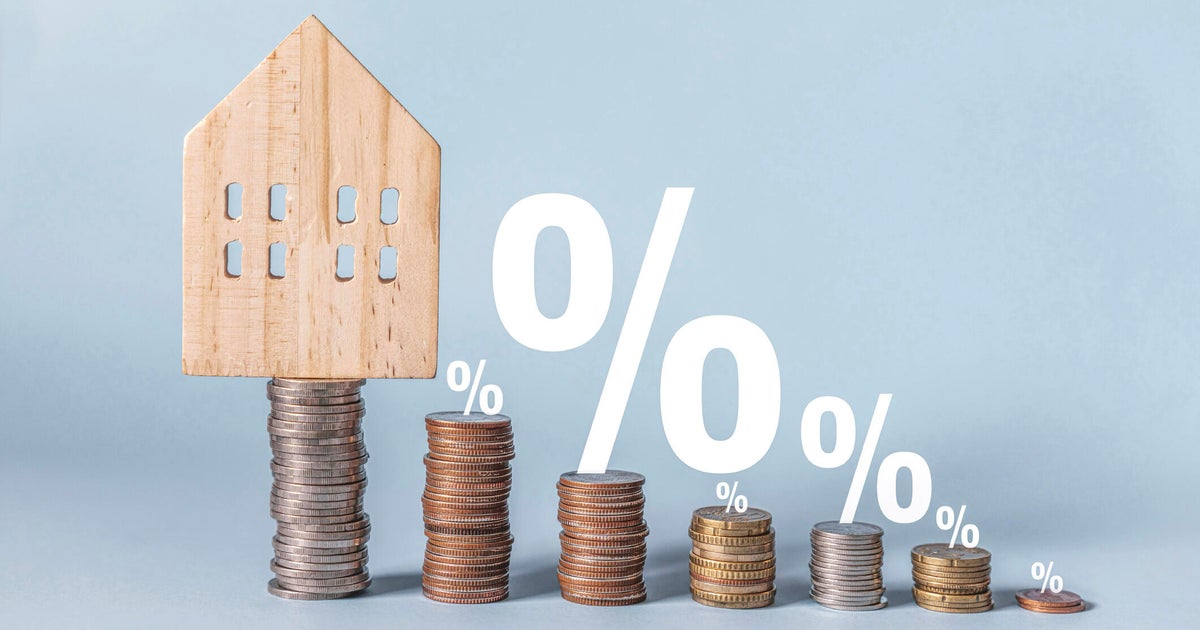Mortgage refinance myths busted: What to know now
Mortgage interest rates have increased significantly in recent months (think: around 7%) as the Federal Reserve seeks to cool the economy and fight inflation. After near record-low mortgage rates helped spur a booming market during the pandemic, refinancing at a time like now may not seem to make sense.
But there are still some circumstances when refinancing your home mortgage may be helpful.
When you refinance, you take out a brand-new mortgage. That loan is used to pay off your current loan, ideally replacing it with terms better suited to your financial needs and goals.
If you think this is something you could benefit from then reach out to a mortgage refinance expert now. They can answer any questions you may have and help you get started.
Mortgage refinance myths to know
As you embark on the mortgage refinancing process it's helpful to fully understand the potential benefits. Here are five common refinance myths to know.
Now isn't the right time to refinance.
Refinancing depends largely on your individual situation. For example, if you had less-than-ideal credit and weren't able to get in on the record-low rates when you took out your existing mortgage, you may still want to do the math when it comes to a refi. Use the mortgage refinance calculator below to crunch the numbers.
Check Freddie Mac's weekly rates and compare them against your own. If you find a rate a full percentage point less and the length is close to the remaining time of your current loan or shorter, most professionals would advise you to take it.
Even a half-point drop may be worth checking out, especially if your initial home loan was a large one or carries an adjustable rate. Shifting to a fixed rate from an adjustable one can provide stability when it comes to planning your monthly finances.
Refinancing is only about getting a lower rate.
There are many reasons people refinance other than the lure of a lower interest rate. Some are able to cut the length of a loan, shedding years of interest payments and lowering the loan's total cost. Others take cash out of the value of their home and use the proceeds to pay off higher-interest debt, like credit card or personal loan balances. This is an important consideration with consumer debt at an all-time high. You may also be able to eliminate the cost of private mortgage insurance (PMI).
Make sure you do the math on the total cost of refinancing to be sure you're saving money either on monthly payments or in total, depending on your financial goals and situation.
Speak with a mortgage refinance expert who can help you determine if refinancing is right for you.
Your current lender can offer you the best rate terms.
You may be comfortable with your bank or lender, but it pays to shop around. Rates in recent years differed between lenders by as much as 0.22%, according to Freddie Mac. Also consider that fees, points, PMI and closing costs all add up. Compare estimates for the entire mortgage loan as well as monthly payments.
Use the table below to shop lenders and rates to find the best one for your situation.
It's a bad idea to use your home refinance to pay off other debt.
Credit card interest rates were about 16% this past summer, according to data from the Federal Reserve. If you want to pay off this kind of debt, the value of your home has climbed, and you're able to change or curb your card spending habits, cash-out refinancing may make sense. Consider whether you're able to handle a higher monthly mortgage payment as part of your bigger financial picture.
Remember to include all of the numbers such as estimated closing costs and total interest on the loan before making your decision.
You'll lose some of your home's equity.
This is only true if you take out cash when you refinance. Home equity is the property's market value minus any liens - like your current mortgage - attached to the property. Lowering the interest rate, dropping mortgage insurance or refinancing with a shorter-term mortgage won't change overall equity.
The bottom line
Refinancing generally isn't worth it when you already have a mortgage rate that's significantly lower than current rates. However, if you could either save money, reduce the loan term or both, it's worth exploring further.
If you need cash now you could also pursue a reverse mortgage. A reverse mortgage allows homeowners (62 and older) who have completely paid off or paid off most of their mortgage, to take out a portion of their home's equity. This would qualify as tax-free income. It needs to be repaid, however, if the homeowner dies or elects to sell the home. Still, it may be worth pursuing if the cash is needed.
As always, it's a good idea to check with a financial adviser or real estate professional to help with the math. Experts recommend you carefully take into account your entire budget and financial situation, both monthly and longer-term.




